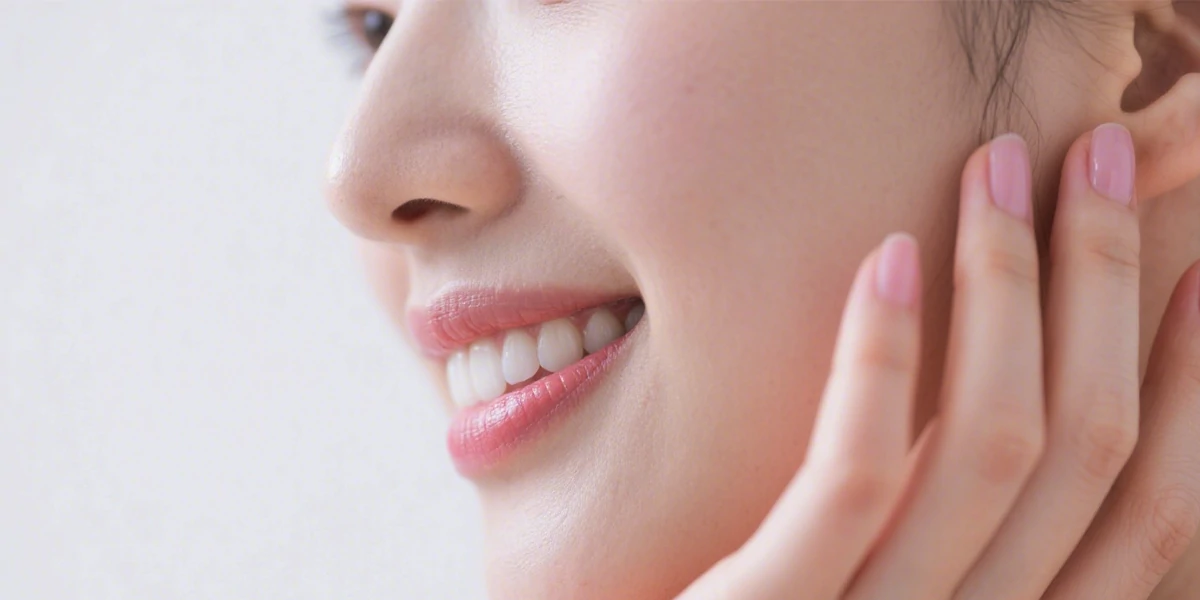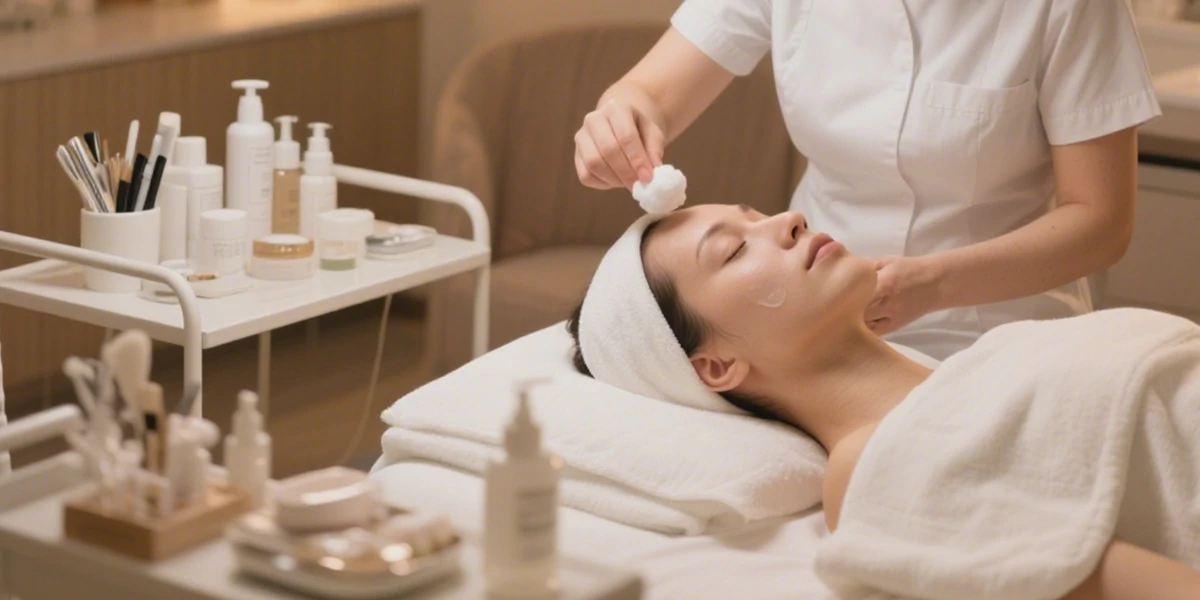Blog
What Is Better Microdermabrasion or Hydrodermabrasion?

If the eyes are the windows to the soul, then your skin is the mirror reflecting your overall health. Factors like cortisol levels, aging, and diet can visibly impact your skin. For those seeking clearer, softer, and more radiant skin, microdermabrasion often comes to mind. However, individuals with dry or dehydrated skin may hesitate to try this treatment, especially if they don’t have scars or acne concerns. Fortunately, a new alternative has emerged: hydradermabrasion. This option is safe for all skin types, replenishes hydration, and offers many benefits similar to traditional microdermabrasion. In this article, we will explore both popular exfoliation techniques, help you decide whether microdermabrasion or hydrodermabrasion is better for your skin.
What Is Microdermabrasion?
Microdermabrasion is a non-invasive procedure that exfoliates the skin’s outer layer, promoting cell turnover and revealing fresher skin beneath. It is particularly effective for improving skin texture, reducing fine lines, and addressing issues like acne scars and sun damage.
Two Types of Microdermabrasion and How They Work
There are two primary methods of microdermabrasion: crystal microdermabrasion and diamond-tip microdermabrasion.
Crystal Microdermabrasion
Crystal microdermabrasion utilizes tiny crystals, typically aluminum oxide, to gently sand the skin’s surface. A handheld device sprays these crystals onto the skin while simultaneously vacuuming away dead skin cells. This method effectively exfoliates the skin and stimulates collagen production, leading to improved skin texture.
Advantages:
- Effective for a range of skin issues.
- Can be adjusted for various skin types.
Disadvantages:
- May cause slight irritation or redness.
- Possible risk of uneven exfoliation.
Diamond-Tip Microdermabrasion
Diamond-tip microdermabrasion employs a diamond-tipped wand to slough off dead skin cells. The wand glides over the skin, providing a more controlled and gentle exfoliation compared to the crystal method. This technique is often preferred for sensitive areas and delicate skin.
Advantages:
- Less risk of irritation.
- More precise exfoliation.
Disadvantages:
- Typically more expensive than crystal microdermabrasion.
- Requires skilled technicians for optimal results.
Effects of Microdermabrasion
Microdermabrasion provides numerous benefits, including:
- Smoother skin texture.
- Reduction in the appearance of fine lines and wrinkles.
- Diminished acne scars and hyperpigmentation.
- Enhanced absorption of skincare products.
Most patients notice immediate improvements, with continued enhancement over several sessions.
What Do the Studies Show?
Studies have explored the efficacy of microdermabrasion for various skin conditions. For instance, a study published in the American Society for Dermatologic Surgery found that patients with facial scarring experienced “good to excellent clinical improvement” after an average of nine microdermabrasion treatments. Another study in the Iranian Journal of Dermatology noted that microdermabrasion disrupts and regenerates the skin barrier, leading to changes in skin biophysical parameters. For further reading, you can check out this article from the Journal of the American Academy of Dermatology: Molecular Analysis of Microdermabrasion.
What Is Hydrodermabrasion?
Hydrodermabrasion is a newer technique that combines traditional exfoliation with hydrating solutions. Using a specialized device, this method exfoliates the skin while simultaneously infusing it with serums tailored to individual skin concerns. This dual-action process not only removes dead skin cells but also provides hydration and nourishment.
Effects of Hydrodermabrasion
The hydrodermabrasion benefits are often immediate and include:
- Increased hydration levels.
- Improved skin texture and tone.
- Reduction in the appearance of fine lines.
- Enhanced overall skin vitality.
Hydrodermabrasion is generally suitable for all skin types, including sensitive skin, due to its gentle approach.
What Do the Studies Show?
Studies indicate that hydrodermabrasion can significantly enhance skin quality. A study in the Journal of Cosmetic and Laser Dermatology showed that hydradermabrasion improved epidermal and dermal thickness and increased antioxidant levels. Moreover, research suggests that using hydrodermabrasion methods to apply serums can increase the penetration of skincare solutions. For more information, you can refer to a study published in the PMC journal that highlights the efficacy of hydradermabrasion: Hydradermabrasion and Skin Rejuvenation.
Key Differences Between Hydrodermabrasion and Microdermabrasion
While both treatments aim to improve skin quality, there are 5 notable differences:
Intensity of Resurfacing
Microdermabrasion tends to be more intensive, providing deeper exfoliation. Hydrodermabrasion is milder and focuses on hydration while exfoliating.
Specialty
Microdermabrasion is effective for various skin concerns, including acne scars and sun damage. Hydrodermabrasion excels in providing hydration, making it ideal for dry or sensitive skin.
Exfoliating Agent
Microdermabrasion uses crystals or a diamond tip, while hydrodermabrasion relies on a combination of water and serums, making it less abrasive.
Immediacy
Patients often see immediate results with hydrodermabrasion due to the hydrating elements, while microdermabrasion effects may take a few days to fully surface as the skin heals.
Frequency of Use
Microdermabrasion treatments are typically scheduled every 2-4 weeks, depending on individual skin needs. Hydrodermabrasion can be performed more frequently, often weekly, due to its gentler nature.
Which Is Better: Microdermabrasion or Hydrodermabrasion?
Deciding between hydrodermabrasion and microdermabrasion depends on your skin type and specific concerns. If you’re looking for a deep exfoliation to address issues like acne scars or sun damage, microdermabrasion may be the better choice. However, if your primary concern is hydration or if you have sensitive skin, hydrodermabrasion could be more suitable.
Which Should I Choose?
When choosing between these treatments, consider the following factors:
- Skin Type: Sensitive or dry skin may benefit more from hydrodermabrasion, while oily or thick skin may respond better to microdermabrasion.
- Desired Results: For immediate hydration and a glow, hydrodermabrasion is ideal. For deeper exfoliation and treatment of specific skin conditions, microdermabrasion is effective.
- Recovery Time: If you prefer a treatment with minimal downtime, hydrodermabrasion is the way to go.
Frequently Asked Questions (FAQ)
Q: How do I know which treatment is right for me?
A: If you have dry or sensitive skin, hydradermabrasion may be your best option for hydration and gentleness. If you have oily or acne-prone skin, microdermabrasion could be more effective for deep exfoliation.
Q: How many sessions will I need?
A: Most patients see improvements after a few sessions. Typically, microdermabrasion is done every 2-4 weeks, while hydradermabrasion can be performed weekly.
Q: Is there any downtime?
A: Microdermabrasion may cause slight redness that lasts a few hours, while hydradermabrasion usually has no downtime, allowing you to return to your daily activities immediately.
Q: I am owner of a beauty spa, is it worth investing?
A: Investing in a professional microdermabrasion or hydrodermabrasion machine can really elevate your skincare practice, especially in today’s competitive beauty market. These machines can cleanse, hydrate, exfoliate, and rejuvenate the skin all at once, delivering non-invasive treatments with instant results. With top-notch technology, you’ll not only boost client satisfaction but also enhance your brand’s reputation and drive long-term profits. It’s a smart move for any skincare business!
Conclusion
Both microdermabrasion and hydrodermabrasion offer unique benefits for skin rejuvenation. Understanding the differences between these two treatments can help you make an informed decision based on your skin needs and goals. Consult with a skincare professional to determine the best approach for achieving your desired results, and enjoy the journey to healthier, more radiant skin.

















